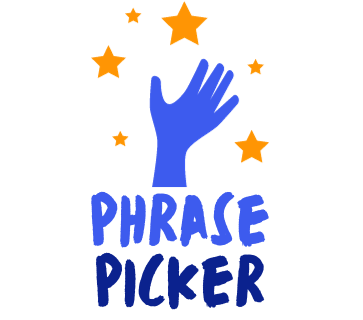Introduction
The phrase ‘talk to you soon’ is a charming and casual sign-off we commonly use in our daily communications. It not only sets a friendly and positive tone but also implies a certain intention of continuation in the conversation. In this article, we will delve deeper into the usage of ‘talk to you soon’, its context of use and a range of alternative phrases with the same essence. Let us embark on an exploration journey into the fascinating world of communication.
Key Takeaways
- The phrase “talk to you soon” is often used as a vague commitment for future communication, implying a sense of assurance without necessarily defining a specific time frame.
- Alternative terms to “talk to you soon” include phrases like catch you later, speak with you later, and we’ll chat soon, all of which carry similar meanings but depend on the context and relationship of the conversants.
- The usage of “talk to you soon” should ideally reflect genuine intention to reconnect with the recipient. Misusing the phrase could lead to misunderstandings or decrease its sincerity.
Other Ways to Say “talk to you soon”
- Catch you later
- Speak to you later
- Chat with you soon
- Will be in contact
- Talk in a while
- See you shortly
- Continue this soon
- I’ll get back to you
- Let’s reconvene soon
- We’ll carry on this conversation
- We’ll pick this up again
- Until our next conversation
- Resume this later
- We’ll be in touch
- Stay tuned
‘Speak With You Shortly’
While ‘talk to you soon’ is colloquial and conversational, ‘speak with you shortly’ acts as a more formal variation of the phrase. For instance, you could refer to ‘speak with you shortly’ while ending a meeting with your superiors at work, or during formal correspondeces where etiquette is of utmost importance. This is particularly key in cultures or contexts where maintaining a level of formal respect is crucial for professional communication. Phrases such as ‘look forward to speaking with you in the near future’ or ‘anticipating our discussion soon’ are other examples of formal alternatives to ‘talk to you soon’.
Dear Sir/Madam,
I appreciate your prompt response to my email. I have noted all the information you have provided and I said it would prove essential for my next steps.
I am committed to carrying out the plans we have mapped out and am flexible to adjusting them as necessary based on your further input.
I look forward to our imminent discussion.
Sincerely,
[Your Name]
How To Answer Formal
‘Talk to you soon’ is a common phrase used in various conversations, particularly in informal settings. However, it’s equally important to know how to respond to this phrase in a formal context without losing the essence of cordiality and professional courtesy. For example, ‘I look forward to our next conversation’ carries the same meaning as ‘talk to you soon’ but with a formal and respectful tone, appropriate for professional interactions.
In terms of usage, consider the context of a business meeting. After finalizing the details of a project, as you’re closing the conversation, you might want to assure the other party that you will be keeping in touch about the progress and future discussions. Instead of saying ‘talk to you soon’, that might sound too casual, you can gracefully say, ‘we will connect with you on this soon’ or ‘we will circle back shortly’. This upholds the formal tone yet conveys the same intent.
- ‘I look forward to further discussions.’
- ‘We will revisit this topic soon.’
- ‘We’ll continue this conversation at a later time.’
- ‘Expect a follow-up from our side shortly.’
- ‘Rest assured, we will keep this conversation going.’
Dear Reader,
I appreciate your message and the care that you’ve shown. It is a pleasure to correspond with you and I am looking forward to our future conversations. As per your saying ‘Talk to you soon‘, I certainly look forward to that and appreciate your anticipation.
I want you to know that your engagement with me is highly valuable. Please feel comfort in knowing that I remain available to provide any necessary assistance or to entertain any queries that you may have. I find our interactions valuable and stimulating.
As we proceed further in our conversations, I am glad to contribute my insights and engage in meaningful exchanges, and I assure you, we will indeed talk soon.
Until then, I wish you well.
Best regards,
Your Name
‘Catch you later’
An informal variant of the phrase ‘talk to you soon’ could be ‘catch you later‘. This casual phrase is often used among friends, close colleagues, or family. For example, you might say ‘Great hanging out with you, catch you later!‘ or ‘Thanks for the coffee, catch you later!‘. Choosing this phrase instead of ‘talk to you soon’ allows for a more relaxed and friendly atmosphere. It suggests a closeness or familiarity with the other person, which might not be conveyed with a more formal sign-off like ‘talk to you soon’.
Dear Reader,
We are excited to share our latest updates with you and receive your thoughts on the same. We truly appreciate your efforts in helping us grow.
So, until next time, catch you later!
Best Regards,
Team
How To Answer Informally
When someone says, ‘Talk to you soon’, there are several informal ways to respond that warmly convey anticipation for future conversations. Informal responses should ideally be casual, friendly and carry positive nuances. In daily conversation, a simple ‘Definitely!’, ‘Can’t wait!’, or ‘Looking forward to it!’ contributes to maintaining a light and pleasant atmosphere, positioning you as someone responsive and eager to uphold communication.
The context of using these responses could generally be any informal setting – particularly among friends, colleagues, or relatives. For instance, if a friend says, ‘We should catch up more often. Talk to you soon’, a response like ‘Absolutely!’ or ‘Sure thing!’ neutralizes the formality while keeping the interaction warm and friendly. Similarly, if a colleague in a casual setting says, ‘Let’s brainstorm this tomorrow. Talk to you soon’, a ‘Sounds like a plan!’ showcases not merely agreement but eagerness too.
- ‘Definitely!’
- ‘Can’t wait!’
- ‘Looking forward to it!’
- ‘Absolutely!’
- ‘Sure thing!’
- ‘Sounds like a plan!’
Dear Reader,
Thank you for your commitment to communicating effectively and respectfully. Your endeavour to use ‘Talk to you soon’ in your daily conversations is commendable. Here is a scenario where you can use it:
Imagine you’ve just ended a casual text or email conversation with a friend. This friend has just invited you to a party next week and details will be disclosed later. When concluding this conversation, you say, ‘Sounds great! Talk to you soon.’
This phrase is a perfect way to conclude an informal conversation while letting the other person know that you expect future interaction.
Alternatives to ‘Talk to you soon’ might include phrases such as:
- ‘Catch you later’
- ‘See you soon’
- ‘Speak soon’
These alternatives, while similar in meaning, could ladder up or down in terms of formality and context.
Remember, the best communication is clear, respectful, and understands the context in which it’s being used. We hope this helps you in your daily interactions and future endeavours.
Best,
Your Article Writer
Is It Correct to Say “talk to you soon”?
Yes, it is indeed correct to say: ‘talk to you soon.’ This common phrase is a polite and casual way to end a conversation, especially in non-formal settings. It communicates to the other person that you enjoyed talking with them and that you’re open to continuing the conversation in the near future. However, it’s important to note that the appropriateness of this phrase depends largely on the situation and the relationship between the two parties involved. In most professional settings, it has been observed that this phrase is seen as informal but usually acceptable.
While ‘talk to you soon’ is in no way rude, the perceived level of informality might be off-putting in professional situations or with people with whom you have a more formal relationship. As with use of any phrasal expressions, consider the context, your relationship with the other person, and cultural differences that might influence how your words are received.
In closing, it is our sincere hope that through this article, you have gained a better understanding of how to use the phrase: ‘talk to you soon.’



